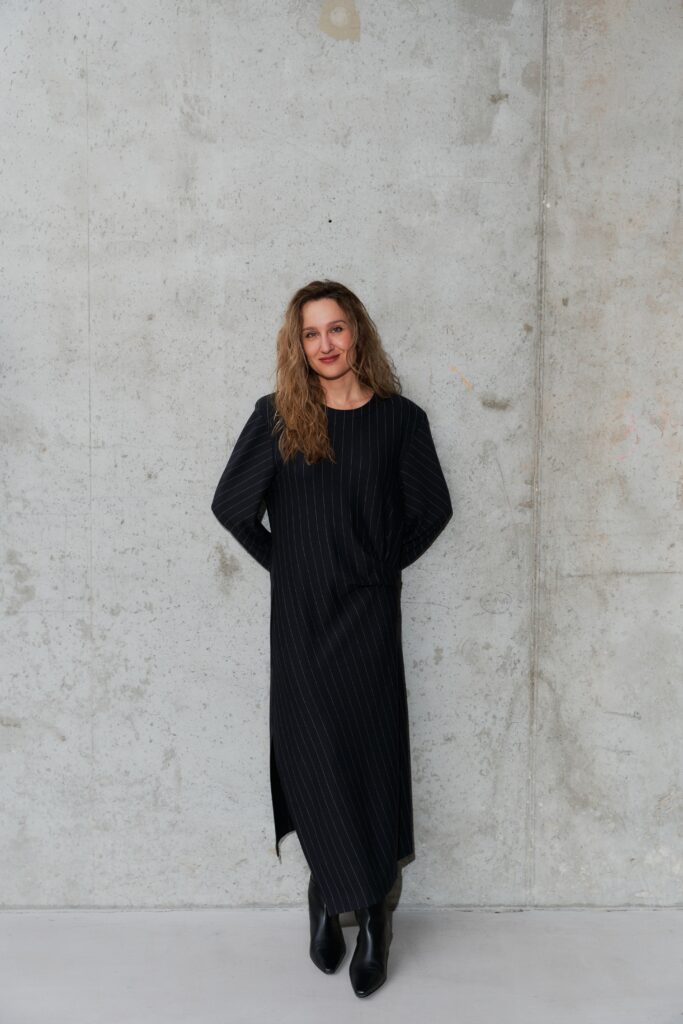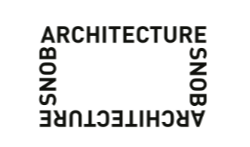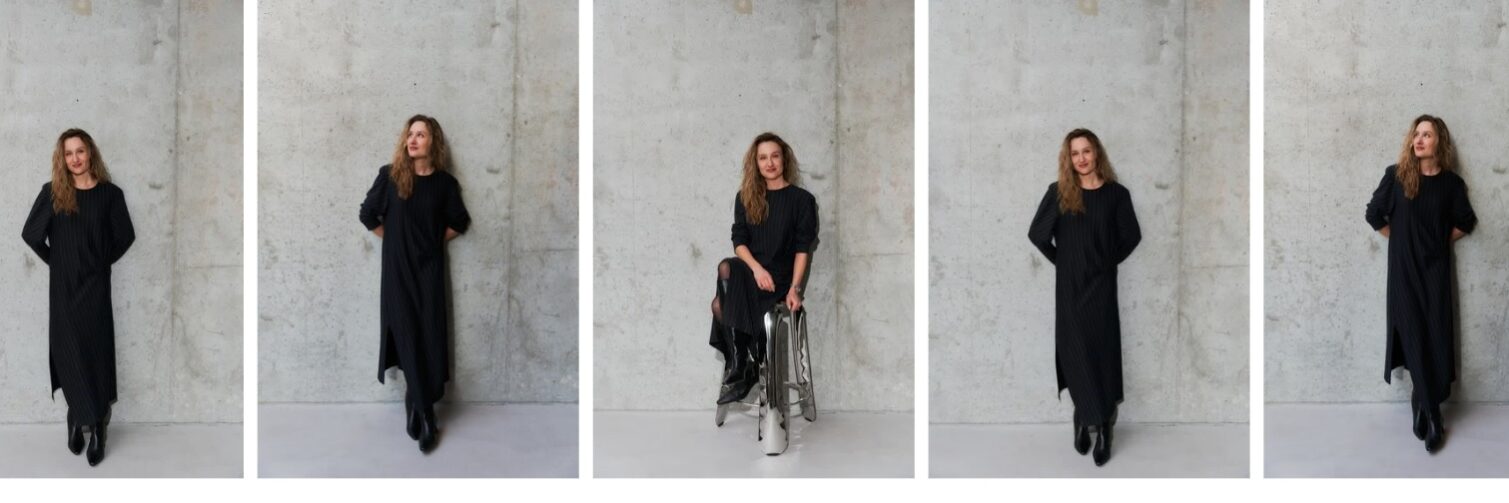I’m Not Afraid to Build from Scratch
She doesn’t design from a place of ego, but from a sense of need. She combines passion with precision, strategy with intuition, and business with art. At OMNIRES, she has revolutionised everything – from brand identity and organisational structure to product quality. Always at her own pace, guided by an internal compass. On being a woman, a leader, a creator, and a partner – Paulina Shacalis in conversation with Marcin Szczelina.

Zdjęcie/Photo: Vlad Baranov
Marcin Szczelina: Paulina, this question seems simple, but it really intrigues me. Who are you today and what was your journey to get here?
Paulina Shacalis: I think I’m someone who’s not afraid to step into new spaces – even if they need to be rebuilt from the ground up. Today I manage OMNIRES and I’m responsible for its direction – strategically, creatively, and in terms of product. But it wasn’t a straightforward or linear path. From an early age, I had several strong interests which – though seemingly divergent – have come together in what I do now. On one side – mathematics, physics, an analytical mind. On the other – a passion for drawing, painting, experimenting with materials. The third sphere was philosophy – abstract and reflective thinking. I briefly considered studying architecture, but chose a more “secure” path – business. I studied at Cambridge, then worked in London – first at branding agencies, then at Unilever. It was valuable, but also eye-opening – I realised I’m someone who needs to be involved from A to Z, to have impact, a sense of purpose and integrity.
So the desire for control was the driving force?
The desire to be involved in everything. Control is one thing, but I need immersion. I want to understand how the whole ecosystem works. At agencies, I only had access to fragments of a brand; in the corporation – to structure, but without creativity. OMNIRES gave me something else – the ability to design not just objects, but systems, thinking, communication. That’s what excites me most – the moment when different disciplines intersect. Interdisciplinarity is not a trend, it’s the future.
How did your work at the company begin?
It was part coincidence, part destiny. During maternity leave, I started helping out with the brand – first with the rebranding, then the website. My father – the company’s co-founder – never pressured me, quite the opposite. He was sceptical. Maybe he didn’t want to burden me, or feared conflict in family dynamics. But I felt I had something to contribute. After the new visual identity came the next steps: new information architecture, photo shoots, a shift in communication style, a transformation in organisational culture, recruitment processes. I worked through every level, learning by doing. I entered the company like a laboratory – with humility and intense curiosity.
Until eventually, you took over management.
Gradually. And very naturally. I started with marketing, then product, and finally the organisation’s entire structure. Today I’m both the managing and creative director, but that happened through action, not titles. For me, the question has always been: what can be improved? Where’s the bottleneck? How can we do this better, smarter, more beautifully? In a few years, OMNIRES has undergone a huge transformation – today it’s a recognised brand with a strong voice and international ambitions; a brand awarded for design quality in prestigious competitions like the Red Dot Design Award, the German Design Award, or our local Must Have; a brand valued by customers for product excellence and reliable support. But behind all that lies everyday work, hundreds of decisions, and a lot of risk.
You also started designing products. What led you there?
At first, I felt a great deal of respect for the field. That’s why I worked with designers like Pawlak & Stawarski, and Maja Ganszyniec. But the more I engaged in the process, the stronger the urge grew to speak in my own voice. I love design – not for aesthetics alone, but for its narrative potential. A project is a story – about the user, about function, about emotion. Today I collaborate with people who support my concepts technically – I sketch, describe form, shape, and detail. I don’t use 3D software, but I know exactly what I want. Sometimes it’s a story about water, sometimes about material, sometimes about creating aesthetic tension in space.
Were you ever tempted to do everything yourself?
I have deep respect for collaboration. I believe that good things happen when diverse perspectives meet. But yes – there are moments when I know something has to come entirely from me. Design is a form of storytelling – and sometimes that story has only one author. But as a brand, we are open – OMNIRES is also a platform for other designers. We build collections with different identities, but they all share the same core: quality, consistency, meaning.
As a woman, did you feel you had to prove more?
Of course. But I don’t want to build a victim narrative. That’s just the way it is – and you have to know how to navigate it. You have to act. For me, the bigger challenge was being “from the family”. I had to prove I wasn’t here to inherit a role, but to take on responsibility. No one gave me a free pass. Today, I’m proud of that journey – full of doubt, but also moments of real agency.
You manage the company, design, and you’re a mother – how do you balance these roles?
I don’t believe in perfect balance. I believe in mindfulness. In listening to yourself. Sometimes I’m all about work, sometimes all about family. But I always ask myself: is this aligned with who I am? I have moments of burnout, exhaustion, doubt – but that’s normal. The key is awareness. And people. I have an amazing team around me who support me. Delegating isn’t just task distribution – it’s an act of trust. That’s something I’ve learned.
What brings you the greatest satisfaction?
The process. Seeing something that started in my mind materialise and begin to take on a life of its own. But also the impact – changing the company, people, the way we think about products. Satisfaction isn’t just the result – it’s the journey. I like when things happen. But I love it even more when they happen well.
And success? How do you define it?
Success is ending the day with a sense of meaning. It’s not about awards, reach, or targets. It’s about alignment with yourself. Knowing that what you’re doing isn’t accidental. That you’re where you want to be – even if it’s not always easy. Success is freedom. To decide. To think. To be.
How do you understand design responsibility today?
Every design decision – even the tiniest faucet detail or handle form – carries consequences. For the user, for the environment, for visual culture. We don’t just design objects – we design habits, experiences, thinking. Responsibility is mindfulness. Good design doesn’t impose – it accompanies. And it doesn’t end at aesthetics – it extends to production and product lifecycle. This is now a standard, not a luxury.
Do you feel your brand plays a role in shaping aesthetic awareness?
Absolutely. It’s our responsibility. For years, design in Poland was treated very technically – as something additional, not fundamental. We show that it’s possible to think of the bathroom as a narrative. That a faucet can be as subtle as jewellery or as raw as a sculpture. And that users deserve this quality – not just in a London apartment, but in an ordinary flat in Rzeszów. Aesthetics aren’t elitist – they’re democratic, if told the right way.
What’s your approach to risk?
Risk is fuel. I’m not reckless, but I don’t believe in progress without experimentation. The worst scenario is stagnation. I’ve made many decisions that went against convention – changes that seemed too radical, new collaboration models, new collections. Not everything works. And sometimes, mistakes lead to unexpectedly great results.
What does femininity mean to you today in a professional context?
It’s not a decoration – it’s an attitude. It’s empathy, the ability to listen, openness to process. But also strength, clarity, and confidence. We’ve long operated in a system that rewarded hardness. Now we’re entering a moment of redefinition. Femininity isn’t the opposite of masculinity – it’s a different quality. It’s not about speaking louder – it’s about speaking in your own voice.
If you could leave one message – for women in the creative industry, for designers, managers, mothers, creators – what would it be?
That we don’t have to meet others’ expectations to be whole. That it’s worth having the courage to be yourself – with all your complexity, emotions, ambitions, fatigue, intuition, and logic. We don’t need to be either strong or soft. We have the right to be different – in different moments. And our voice doesn’t need permission. We just need to speak. Clearly. Truthfully. In our own tone.
The interview is from issue 9 of Archisnob magazine.




